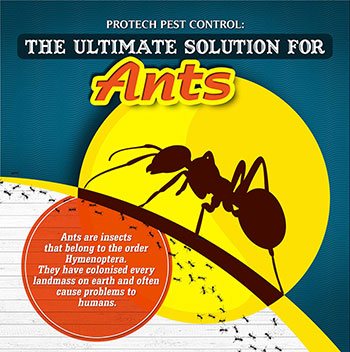Taking Care Of Rodent Infestations: Insights Right Into Rodent Psychology
Taking Care Of Rodent Infestations: Insights Right Into Rodent Psychology
Blog Article
Authored By-Talley Refsgaard
When it comes to rodent control, understanding typical rodent actions is key to properly taking care of invasions. Did you know that rats have some remarkable nesting habits that might surprise you? By exploring their complex actions, you can gain important insights into how to deal with rodent problems in a much more calculated and efficient fashion. So, let's untangle the mysteries behind these creatures' activities and learn just how to outmaneuver them in your rodent control efforts.
Rat Nesting Habits
When observing rats in their natural environment, you'll observe that they actively seek products to build their nests. Rodents, such as mice and rats, are resourceful animals that make use of a variety of items like twigs, leaves, paper, and material to build their homes. They're precise in their nest-building procedure, often lining their nests with softer products like fur or feathers to develop a cozy atmosphere.
https://www.dvm360.com/view/6-pest-control-tips-pet-owners choose to develop their nests in covert and protected locations to shield themselves and their young from predators. Common nesting spots consist of wall surface dental caries, attic rooms, cellars, and even within insulation products. By building their nests in these private areas, rodents can securely increase their children far from possible threats.
https://www.cambridgema.gov/Departments/animalcommission is vital to recognize the nesting routines of rats when carrying out control steps. By disrupting their nests or getting rid of materials, you can dissuade rodents from establishing a visibility in your home or residential property. Appropriate hygiene and sealing access factors are also critical steps in stopping rodent infestations.
Rat Feeding Patterns
After observing rodents' nesting practices, it ends up being noticeable that their feeding patterns play an important function in their day-to-days live and habits. Rats, including computer mice and rats, are opportunistic feeders, implying they'll eat whatever food resource is conveniently offered. They're largely nighttime creatures, choosing to forage for food during the cover of night to prevent predators.
Rats have a varied diet regimen, varying from grains, seeds, fruits, and vegetables to pests, nuts, and even small pets. This adaptability in their food options enables them to grow in various environments, consisting of city areas where human food sources are bountiful.
Their feeding patterns aren't just driven by cravings however also by the need to stockpile food for times of shortage. This habits is specifically recognizable in preparation for winter months or when nesting. Rodents are known to hoard food in their nests or burrows, making certain a consistent food supply. Comprehending their feeding patterns is essential in executing efficient rodent control procedures to disrupt their food resources and stop invasions.
Rat Motion and Travel
Rats browse their environments with agility and stealth, utilizing their eager detects to move swiftly with their environments. These creatures are adept climbers, able to range wall surfaces and upright surfaces effortlessly. They can additionally press with remarkably small openings, making it crucial to seal off any kind of potential entrance factors in your house.
When it concerns taking a trip, rodents tend to follow acquainted paths, producing routes along wall surfaces or skirting the sides of areas. They're creatures of habit, typically staying with these developed courses as they forage for food or discover their environments.
Rodents are understood for their nocturnal behaviors, so you may hear them scooting around at night as they search for food and water. Their motions fast and unpredictable, allowing them to dart in and out of view in the blink of an eye.
Understanding how rodents relocate and travel can aid you determine potential problem areas in your home and take proactive actions to avoid these parasites from acquiring a grip.
Verdict
As you work to manage rodents in your home, bear in mind that comprehending their actions is key. By acknowledging their nesting practices, feeding patterns, and activity, you can successfully protect against infestations.
Coincidentally, by taking positive procedures to get rid of food sources and seal entrance points, you can disrupt their acquainted paths and compel them to seek new places, eventually lowering the probability of rodent visibility in your home.
